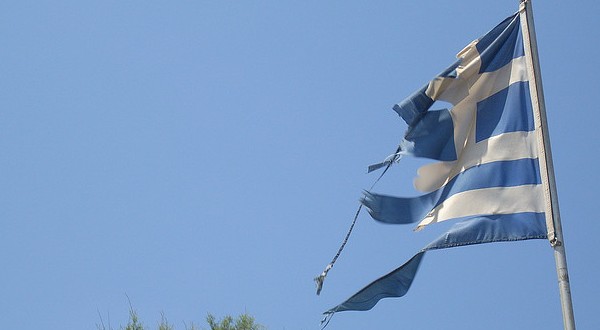By Robin Wigglesworth and Kerin Hope, Financial Times
Greece has managed several unwelcome firsts as the eurozone crisis has unfolded. Last week, it set another precedent when MSCI, the influential index provider, relegated the country from its developed country index to emerging markets.
The move was the first time MSCI downgraded a country from developed market status. While many investors had predicted MSCI’s review would end in a relegation, the move still contributed to a 3.2 per cent decline in the Athens Stock Exchange on the day.
Yet, the downgrade could prove to be a blessing in disguise. Although hundreds of billions of dollars track MSCI’s developed market indices, Greece only had a small weighting, and its companies are too small to be of much interest. Moreover, the type of investors that are benchmarked to developed market gauges tend to be risk-averse, and shun stricken countries like Greece.
By contrast, in the EM index, Greece will have a higher weighting, which could more than outweigh the effects of the downgrade. HSBC estimates that less than $200m of passive developed market index-tracking money will seep from Greece as a result, but the EM inflows could go above $1bn.
More importantly, perhaps, the emerging markets gauge will in the longer run prove a more natural home for Greece, given that the investor base is more used to economic and political uncertainty.
“Let’s face it, Greece is an emerging market and now it is classified as one,” says Achilles Risvas, manager of a Greece-focused hedge fund at Dromeus Capital.
“With Greece being in the eurozone but classified as emerging markets, a number of the Greek corporates will have a relative edge to similar comparables in emerging markets.”
Indeed, last week’s stock marker decline was only partly caused by the index relegation. Investors were also spooked by the failure to privatise the government-owned gas monopoly, Depa, and political strife triggered by an abrupt shut-down of ERT, the public broadcaster
But some fund managers took advantage of the selling pressures from the index downgrade, and the market has climbed 6 per cent in the two days after the MSCI downgrade.
“When all the index boys are forced sellers you can pick up some great assets at very attractive prices,” one equity fund manager says. “For Greece the significance will be in the difference between the pool of forced seller versus the willing buyers on the emerging markets side.”
After falling into a technical bear market – more than a 20 per cent drop since its March peak – some analysts argue that the Athens stock market is rich with opportunities.
Although Greek equities are still up 93 per cent from the market’s trough last year, when fears of a eurozone exit were at their peak, the market is still worth only roughly a fifth of its pre-crisis total. Valuations are extremely low, and after surviving a domestic depression, many Greek companies are now relatively lean.
Hedge funds have already made a lot of money betting on Greek bonds. But, with yields now climbing, hedge funds have started to weigh the opportunities on offer – not least in the recapitalisation of the domestic banking sector. Buttressing the banking sector will be a boon to the economy.
“The recapitalisation of banks should re-start credit flows, which will bring important oxygen into the economy,” says Paolo Batori, strategist at Morgan Stanley. “We believe that Greek economic growth is close to a turning point.”
Nonetheless, much hinges on a return to economic growth, political stability and more clarity on the government’s finances. None of these factors can be taken for granted. Predictions of a Greek economic rebound have tended to disappoint, the ERT imbroglio highlighted the country’s political fragility, and Greece’s debts are still ballooning.
Greece is expected to receive a debt reprieve of some sort from its official sector lenders, but the extent of that will be politically sensitive. In the meantime, its bailout programme could easily veer off course. Athens will only get a debt write-off if they stick closely to the targets – and privatisation is already wildly off-target.
Local analysts worry some listed companies that have survived this far could still implode next year as banks are not expected to increase lending soon. Hedge funds have required very favourable terms to recapitalise Alpha Bank, and will be wary of many other weaker lenders.
Moreover, doubts persist about when the economic recovery will start. The government is predicting growth will return midway through next year, but some local economists are already predicting a seventh year of recession in 2014.
Emerging market investors may well be more comfortable with these kinds of risks, but few will yet be rushing to snap up Greek equities.
Additional reporting by Ralph Atkins, Alexandra Stevenson and Christopher Thompson
Greece has managed several unwelcome firsts as the eurozone crisis has unfolded. Last week, it set another precedent when MSCI, the influential index provider, relegated the country from its developed country index to emerging markets.
The move was the first time MSCI downgraded a country from developed market status. While many investors had predicted MSCI’s review would end in a relegation, the move still contributed to a 3.2 per cent decline in the Athens Stock Exchange on the day.









